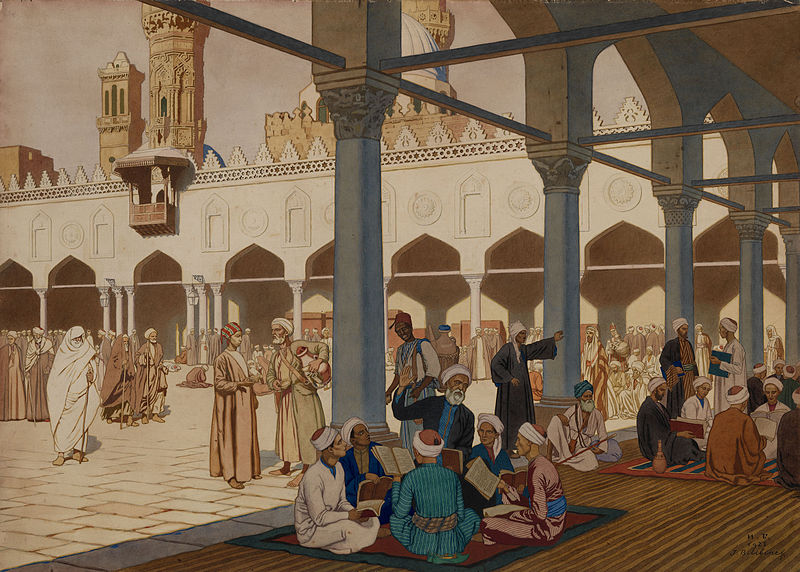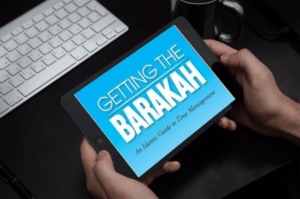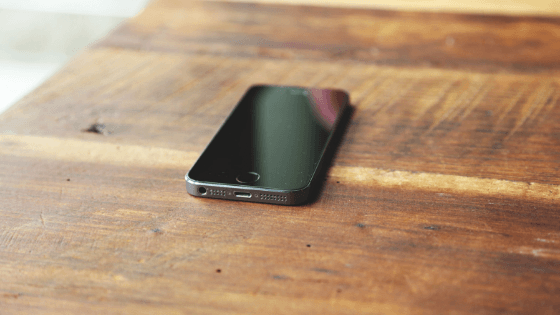5 Ways Education was better in the Muslim Golden Age
It is no secret that I am a critic of the modern school system. An experiment that started just over one hundred years ago, the current system is already outdated and failing millions of children. However, education wasn’t always like this. During the Muslim Golden Age, education thrived through a system of Madrassas, universities and private tutorship that produced some of the greatest minds of that era.
NOTE: Madrassa (in this article) is used to refer to the ancient schooling system that covered all subjects ranging from Math to science to religious studies. It does NOT refer to the modern secularized version that separates and focuses only on religious studies.

As we move forward and try to fix our current system, we can look back and draw important lessons from systems that worked in the past. Here are five lessons we can take from this ancient education system and apply to our times.
1. It focused on individual strengths
The Madrassa system of the Muslim Golden Age did not have a one-size-fits-all approach to education. As young as seven years old, a student would be categorized according to his strengths and assigned studies accordingly. As a result, time wasn’t wasted teaching students things they were not going to use in life.
Think about it? Why would a language expert need to study High School Math? Or a Math whiz need to study grammar in depth? Why should a history buff need to memorize science facts to pass a test? Or a budding scientist need to memorized the dates and names of various wars?
When a student recognizes his/her area of expertise early, they can choose their subjects accordingly. This led to the second benefit of this ancient system.
2. Students would graduate earlier.
By starting early, time wasn’t wasted with a 13 year common education program, before deciding what to specialize in. As a result, in the Muslim Golden Age many great scientists and doctors graduated and started practicing at incredibly young ages.
Ibn Batutta graduated as a judge (Qadhi) at the young age of 21. And Ibn Sina was already treating patients when he was 18 years old. In fact, Ibn Khaldun was already a graduate in Islamic Studies by the age of 17!
This shows the benefit of a system that focuses on strengths. Each of these individuals went on to become legends in their fields dedicating their lives to mastering and developing their areas of expertise.
Imagine today if we can have people discover their strengths at a younger age, graduate younger, and start working on their legacy at a younger age. A large part of people’s lives that is usually wasted\ could become the most productive time of their life with such a system.
3. There were many education systems
A single system of education does not benefit everybody. People learn in different ways, and so there should be various systems on offer. So each student can choose to study in a way that suits their study style best.
We see this in the earlier periods of the Muslim Golden Age. Some great scientists went through the madrassa system, while others studied books at home. Some experimented in their labs, while others sat at the feet of mentors and learned from them. And some even combined all of these at different stages of their lives.
So education to be relevant again. We need to stop thinking that one system suits all. We need more variety. If someone is a voracious reader, then let them stay home and consume as many books as possible. If someone learns better through experiments, take them out of school and give them a lab to experiment in. (Which is what Einstein’s parents did)
The world needs a more flexible system of education. So that readers are not stuck attending lectures, and physical learners are not stuck sitting quietly in class. We need to find ways to make this happen in the modern world, and the internet makes it more possible than ever before.
4. They did not separate subjects into Islamic and Secular
The separation of school and Madrassa in the modern world is a result of colonialism, and has had a terrible effect on the minds of Muslims. Entire generations of Muslims were raised thinking that math, science and language have nothing to do with Islam. And that Islam is just something you study in the afternoon, but the ‘secular subjects’ are your priority.
The reality is that Islam teaches us to actively pursue all beneficial knowledge. This includes knowledge of beliefs, Islamic law, history, math, science, business, personal development and everything else that benefits us.
During the Muslim Golden Age, this was the norm. Al-Khawaarizmi invented Algebra to solve complex Islamic inheritance law issues. Ibn Sina pursued medicine because the Prophet (peace be upon him) taught us that every illness has a cure. Ibn Khaldun analysed history because the Quran teaches us to take lessons from history. It was all intertwined. we need to return to this system of education that does not separate between subjects into religious and secular. All that matters is beneficial knowledge.
5. It served a higher purpose
In the Muslim Golden Age, education was not primarily about the pursuit of wealth, fame and status. (Although such individuals did exist) The primary purpose of the Madrassa system was to raise citizens who would serve God and take care of God’s Creation.
Education was for the sake of community, not self. It was for God, not desire. And it was for making the world a better place, not just lining one’s pockets. This is why during the Muslim Golden Age, we find the existence of free healthcare (even for animals), free education, entire systems dedicated to charity work, and overall increase in happiness for the average person.
An education system that focuses on selfish materialistic success is doomed to fail. Such a system produces narcissists and selfish individuals. It makes us lose focus on what is most important: pleasing the Creator through caring for His creation.
To learn more about the Muslim Golden Age, join our online course by clicking here.
https://courses.islamicselfhelp.com/p/muslim-golden-ages





